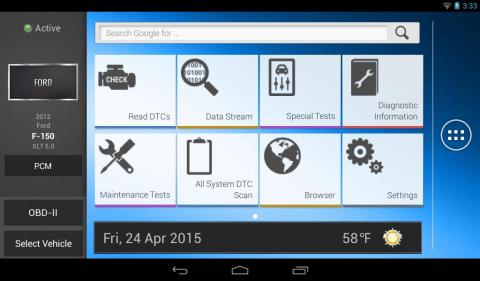
It’s time for you to purchase a new diagnostic scan tool. As you begin looking around, you quickly discover the marketplace is filled with literally hundreds of options for you to choose from. You panic. How can the wheat possibly be separated from the chaff? Relax. Then follow a few simple steps that will help guide you to the perfect diagnostic scan tool for you and your shop.
Step 1: Don’t panic. Great options await.
Step 2: Examine what you work on. What vehicles does your shop service the most? Consider makes, models and years; the more specific you can be the better. This will help narrow down your search for the right tool.
Step 3: What repair work isn’t your shop doing? This may be the opportune time to expand the type of work your garage can handle through a tool that can handle it. If you’re already making an investment in a new diagnostic tool, why not choose one that can potentially bring in additional revenue for you and your shop?
Step 4: Take into consideration all of the tangibles and intangibles that are most important to what you do and how you operate. Things such as coverage, ease of use, compatibility, ability to upgrade, and of course cost, should all be considered. A word of advice—don’t get too hung up on cost, which we’ll cover a little further down.
Step 5: Consider new technologies available on today’s diagnostic tools, like Bluetooth capabilities and Android based operating systems. If you are leaning toward a more robust diagnostic tool you should consider what other unique features the equipment comes with. For example, does it have repair information built in? Can it reprogram as well as diagnose and trouble shoot?
Step 6: Take a long hard look at your potential return on investment. In other words, how many jobs will you have to perform to cover the cost of your new diagnostic tool? In addition to asking ‘will this tool allow me to handle new types of repairs, aka bring in new business’, will it allow me to diagnose and fix vehicles faster, enabling me to work on and bill for more projects?
Step 7: Find a quality sales rep that will allow you to demo tools and train you on how they work. Quite often, shop owners and technicians purchase elaborate diagnostic tools and then only utilize about 50 percent of what the tool can actually do. If you are going to drop hard-earned cash to purchase a top-notch diagnostic tool, you really ought to be properly trained on all of its features.
Good luck with the search. It is our hope you are now armed with the right considerations and proper mindset to succeed.



